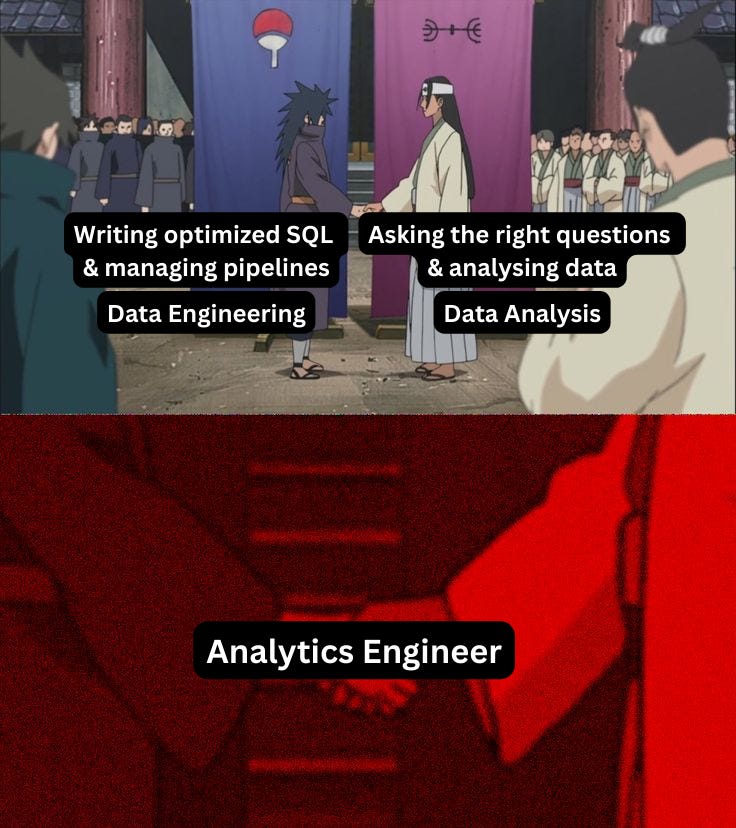The Great Data Title Confusion
How vibe hiring created a world of misplaced Data Scientists
Almost 4 years ago (49 months - to be precise), I got my first job. At that time, I was a bit disappointed with my title. It was "Analyst" and not "Data Scientist."
There were a few reasons for my disappointment. The work I was supposed to do aligned more with traditional Data Science (DS) - using mathematical optimization, statistics and machine learning to solve business problems. Plus, the Data Scientist was touted as the "sexiest job of the 21st century." And let's face the fact: Data Scientist sounds much cooler than Data Analyst, even though in many cases there's literally no difference in the day-to-day job.
Now, four years down the line, I’m actually glad that my role back then was “Analyst.” All of my subsequent roles have had Analytics or Analyst in the title, and I feel increasingly good about that.
Who is a Data Scientist, Really?
Traditionally, a Data Scientist was someone who could generate business insights or solve problems through statistical or machine learning techniques, while also having some knowledge of software engineering.
But over the years, the focus on business insights or solving problems through these domains has faded. Now, anything remotely data-related is often referred to as work for a Data Scientist.
In the last two and a half years, I’ve met many Data Scientists who don’t have a strong grasp of statistical concepts. They’re excellent at the software engineering side of data, often far better than me, but asking the right questions with data and applying statistical thinking to answer them? That seems to be slipping away.
Interestingly, most analytics-related roles (both Business and Data) still retain a bit of that original “purity.”
The Vibe Hiring Epidemic
One reason for this epidemic is "vibe hiring" and the fact that Data Science was marketed as the "Sexiest job of the 21st century."
When a field is presented as that glamorous, you naturally get a flood of people entering it. And the skillsets they bring vary widely. Some focus on mastering mathematical concepts; many focus on tools and frameworks.
Organizations often lack experienced Data Scientists who can make relevant hires based on the problems they're facing. They see any data-related problem and look for a Data Scientist to solve it.
Want to maintain a data pipeline? Hire a Data Scientist.
Need to do some basic data wrangling? Hire a Data Scientist.
Want to automate manual Excel work? Yep… still hire a Data Scientist!
This “vibe hiring” has filled the field with people mismatched for the roles they’re in, and organizations don’t really know what to do with them either.
Analytics Engineering: The Missing Link
What these organizations should be looking for is an Analytics Engineer.
These professionals are skilled at maintaining databases, optimizing queries, building data models, and possess basic analytical thinking related to Data Science. They effectively combine elements from both worlds.
These jobs aren’t as flashy as “Data Analyst” or “Data Scientist.” But if companies start naming roles more accurately, Analytics Engineering will boom. It could also reduce the confusion and chaos caused by vibe hiring.
The mismatch between titles and actual responsibilities not only creates confusion but also leads to inefficiencies and frustration on both sides. Companies need to get clearer about what they really need, and those of us working in data should focus on building skills that solve real problems aligned with our career goals, rather than chasing trendy titles.
If you've ever wondered why your 'Data Scientist' job involves more engineering than science (or vice versa), share this post to help clear up the data career confusion we're all swimming in!


